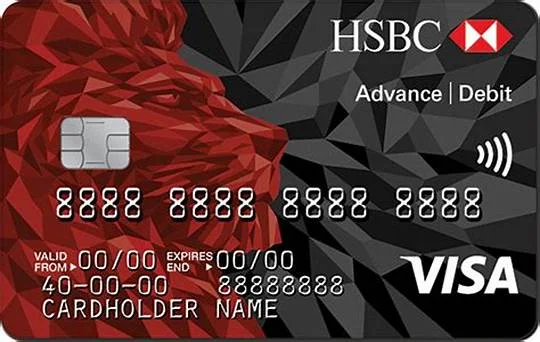Safe and Secure: Buying Clone Cards in the UK

In an era where digital transactions dominate the economic landscape, the use of clone cards has become a subject of both interest and concern. While often associated with illegitimate activities, Colnecardsoutlet also have valid, legal applications that make them a valuable tool for security testing, privacy protection, and more. This article aims to explore the safe and secure methods of buying clone cards in the UK, ensuring that individuals and businesses can make informed decisions while staying within legal boundaries.
Understanding Clone Cards
Clone cards are replicas of existing credit or debit cards. They are created by copying the data from the magnetic strip or chip of an original card onto a new card. This process involves sophisticated technology and a deep understanding of card mechanics. The resulting clone card looks and functions like the original, making it difficult to distinguish between the two.
The concept of cloning cards often raises red flags due to its association with fraud. However, there are legitimate uses for clone cards, such as in security testing, where companies use them to evaluate the robustness of their payment systems, and in maintaining anonymity during transactions to protect personal information from being exposed.
The Legal Landscape in the UK
Navigating the legal landscape surrounding clone cards in the UK is crucial for ensuring that their use remains within the bounds of the law. The primary legislation that governs the use of clone cards includes the Fraud Act 2006 and the Computer Misuse Act 1990. These laws prohibit unauthorized access to computer material and fraudulent activities involving financial transactions.
For businesses and individuals seeking to use clone cards legally, it is essential to have explicit authorization from the cardholder. In the context of security testing, companies must ensure that they have the necessary permissions and comply with all relevant regulations. This adherence not only protects the business from legal repercussions but also reinforces ethical standards in the industry.
The Importance of Security
Security is a paramount concern when dealing with clone cards. The process of creating and using clone cards involves sensitive data that, if mishandled, could lead to severe consequences such as identity theft or financial loss. Therefore, it is imperative to choose a provider who prioritizes security and implements robust measures to protect client information.
A reliable clone card provider employs advanced encryption techniques and secure data handling practices. They ensure that all transactions are conducted over secure channels and that the client’s data is protected at every stage. Regular audits and updates to security protocols are also essential to guard against emerging threats and vulnerabilities.
Choosing a Reputable Provider
Finding a reputable provider for clone cards in the UK can be a daunting task given the potential risks involved. It is essential to conduct thorough research and consider several factors to ensure that the provider is trustworthy and reliable.
Firstly, the provider’s reputation in the industry should be scrutinized. Reading reviews and testimonials from previous clients can provide insights into their experiences and the quality of services offered. A provider with a history of positive feedback is more likely to deliver a secure and satisfactory service.
Secondly, the provider’s compliance with legal and ethical standards must be verified. A reputable provider will have clear policies in place regarding the use of clone cards and will operate transparently, ensuring that all transactions are legal and ethical. They should also be willing to provide information on their security measures and data protection practices.
Lastly, consider the level of customer support offered by the provider. Reliable customer support is crucial for addressing any issues or concerns that may arise during the process. A provider who is readily available to assist clients demonstrates a commitment to customer satisfaction and can offer peace of mind.
The Role of Technology in Ensuring Safety
Technology plays a crucial role in ensuring the safe and secure use of clone cards. Advances in encryption and secure data handling have significantly enhanced the security of digital transactions. Reputable clone card providers leverage these technologies to protect client data and ensure the integrity of their products.
One of the key technologies used in this context is encryption. By encrypting the data on the clone card, providers can prevent unauthorized access and ensure that the information remains confidential. This encryption extends to all stages of the transaction process, from the initial creation of the card to its use in a transaction.
Additionally, secure data handling practices are essential for maintaining the safety of clone cards. Providers should employ secure methods for storing and transmitting client data, ensuring that it is protected from potential breaches. Regular security audits and updates to protocols are also necessary to address any emerging threats and vulnerabilities.
Ethical Considerations
The use of clone cards raises important ethical considerations that must be addressed to ensure responsible and lawful use. It is crucial for individuals and businesses to operate within legal boundaries and adhere to ethical standards to avoid contributing to fraudulent activities or other illegal practices.
One of the primary ethical considerations is obtaining proper authorization. Using a clone card without the cardholder’s consent is illegal and unethical. Businesses that use clone cards for security testing must ensure that they have explicit permission from the cardholder and comply with all relevant regulations.
Transparency is another critical ethical consideration. Providers should operate transparently, clearly communicating their policies and practices to clients. This transparency builds trust and ensures that clients are fully aware of the legal and ethical implications of using clone cards.
The Future of Clone Cards
The future of clone cards in the UK is likely to be shaped by ongoing advancements in technology and evolving legal frameworks. As digital transactions continue to grow, the need for robust security measures will become increasingly important. Clone cards can play a valuable role in this context, providing a tool for security testing and privacy protection.
Technological advancements are expected to enhance the security and functionality of clone cards further. Innovations in encryption, biometric authentication, and secure data handling will contribute to the development of more sophisticated and secure clone cards. These advancements will help address some of the current challenges and risks associated with their use.
The legal landscape is also likely to evolve, with new regulations and guidelines being introduced to address the use of clone cards. Staying informed about these developments and ensuring compliance with legal requirements will be crucial for individuals and businesses using clone cards.
Practical Tips for Safe Use
For those considering the use of clone cards, following practical tips can help ensure their safe and secure use. These tips include conducting thorough research, choosing a reputable provider, and adhering to legal and ethical standards.
Firstly, conducting thorough research is essential. Understanding the legal and ethical implications of using clone cards and familiarizing oneself with the relevant regulations can help avoid potential pitfalls. It is also important to research potential providers, considering factors such as reputation, security measures, and customer support.
Choosing a reputable provider is crucial for ensuring the security and legality of clone cards. A provider with a history of positive reviews and a commitment to security and ethical practices is more likely to deliver a reliable service. Verifying the provider’s compliance with legal requirements and transparency in their operations can provide additional assurance.
Adhering to legal and ethical standards is vital for responsible use of clone cards. Ensuring proper authorization and transparency in all transactions can help avoid legal issues and contribute to the responsible use of clone cards. By following these tips, individuals and businesses can use clone cards safely and securely, benefiting from their legitimate applications without compromising legal and ethical standards.
The Benefits of Using Clone Cards
Despite the risks and challenges associated with clone cards, they offer several benefits when used responsibly and legally. These benefits include enhanced security testing, privacy protection, and the ability to maintain anonymity in transactions.
For businesses, clone cards can be a valuable tool for security testing. By using clone cards to simulate transactions, companies can identify and address vulnerabilities in their payment systems, enhancing overall security. This proactive approach can help prevent potential security breaches and protect customer data.
Individuals seeking to protect their privacy can also benefit from clone cards. Using a clone card for online transactions can help prevent personal information from being exposed, reducing the risk of identity theft and other privacy-related issues. This level of anonymity can provide peace of mind and enhance overall online security.
Addressing Common Concerns
There are several common concerns associated with the use of clone cards, including legal issues, security risks, and ethical considerations. Addressing these concerns is essential for ensuring responsible and safe use.
One of the primary concerns is the legality of clone cards. As discussed earlier, it is crucial to navigate the legal landscape carefully, ensuring that all transactions are authorized and comply with relevant regulations. This compliance not only protects the user from legal repercussions but also reinforces ethical standards in the industry.
Security risks are another significant concern. The use of clone cards involves handling sensitive data, which, if mishandled, can lead to identity theft or financial loss. Choosing a reputable provider with robust security measures can mitigate these risks and ensure the safety of client information.
Ethical considerations are also important to address. Using clone cards responsibly and ethically involves obtaining proper authorization, operating transparently, and adhering to legal standards. By following these principles, individuals and businesses can use clone cards without contributing to fraudulent activities or other illegal practices.
Conclusion
In conclusion, the use of clone cards in the UK, while fraught with potential risks and challenges, can be safe and secure when approached responsibly and legally. By understanding the legal landscape, prioritizing security, choosing reputable providers, and adhering to ethical standards, individuals and businesses can benefit from the legitimate applications of clone cards.
The future of clone cards is likely to be shaped by technological advancements and evolving legal frameworks. Staying informed about these developments and ensuring compliance with relevant regulations will be crucial for safe and secure use. By following practical tips and addressing common concerns, individuals and businesses can navigate the complexities of clone cards and leverage their benefits for enhanced security and privacy protection.
As digital transactions continue to dominate the economic landscape, the importance of robust security measures cannot be overstated. Clone cards, when used responsibly, can play a valuable role in this context, providing a tool for security testing and privacy protection. By approaching their use with caution and adhering to legal and ethical standards, individuals and businesses can ensure that they remain safe and secure while benefiting from the legitimate applications of clone cards.




